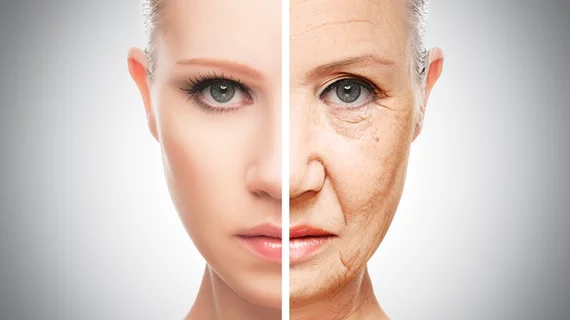L’Oreal launches skin diagnostic tool
A new AI-powered diagnostic tool launched by global cosmetic company L’Oreal allows women to upload a selfie to detect if their skin is beginning to show signs of aging and obtain treatment advice.
The tool is being launched under L’Oreal’s Vichy SkinConsult AI and is expected to be available worldwide later this year. The diagnostic tool allows women to take or upload a self on the company’s website. Using AI technology, the tool detects seven signs of aging:
- Under-eye wrinkles
- Lack of firmness
- Fine lines
- Lack of radiance
- Dark spots
- Deep wrinkles
- Pores
The aging signs are analyzed by the tool, which then suggests skin treatment options.
“For the first time, this technology allows all women to obtain a personal diagnostic to better understand their skin aging and to find a skincare routine tailor-made for them,” Myriam Bekkar-Schneider, Vichy general manager, said in a prepared statement.
L’Oreal’s effort follows similar research that suggests AI could be a helpful tool for physicians after a study found the technology outperformed several dermatologists while analyzing skin lesions for cancer.
L’Oreal’s skin diagnostic tool is based on an AI-powered algorithm developed by ModiFace, an augmented reality (AR) and AI company recently acquired L’Oreal. Using deep learning, the algorithm was trained on 6,000 clinical images from the Skin Aging Atlases, a facial aging dataset with images from 4,000 men and women.
The tool’s performance was tested by using selfies from 1,140 women of three different ethnicities (Asian, black and white) under different lighting conditions and facial expressions. It’s ability to diagnose signs of aging was analyzed by 12 trained experts and dermatologists. The findings were detailed in the International Journal of Cosmetic Science.
According to the study, the system was “weakly influenced” by lighting conditions or facial expressions. Axperts typically agreed with its assessments and the technology performed consistently better after analyzing some facial signs multiple times.
“After virtual makeup try on, virtual hair color try on, online beauty consultations powered by AR, L’Oréal and ModiFace are proud to unveil the first skin care diagnostic authentically powered by AI and science,” Lubomira Rochet, L’Oreal’s chief digital officer, said in a statement.

